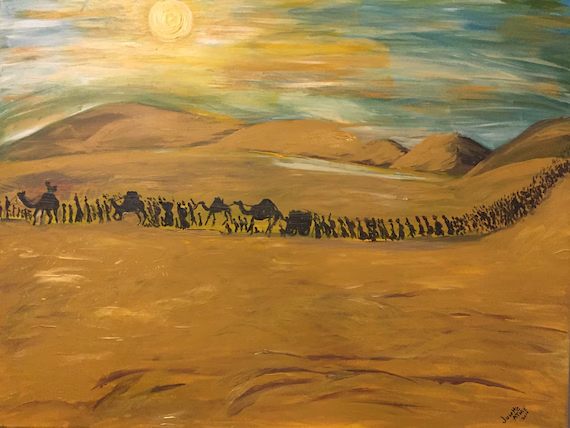A Wedding in Cana
When Jesus was in Galilee, he and some friends were invited to a wedding in the town of Cana. Mary, his mother, was there.
Long before the wedding feast was over, the wine was finished and there wasn't any more. Mary went to Jesus and told him what had happened. Then she said to the servants. 'Do whatever he tells you to do.
There were six huge water jugs near the entrance so that the people could wash before eating the meal. as the Jewish law instructed. Now the jugs were empty.
Jesus said to the servants.
'Fill up the jugs with water and soon the servants had filled them to the top.
Then he said. 'Pour out some of the water and take it to the man who is organizing the feast. The servants did as Jesus told them.
The ruler of the feast tasted the water and found that it was wine. He didn't know that it had come from a water jug, but the servants knew.
The ruler tuned to the bridegroom. 'Everyone serves good wine at the beginning of a feast and when everybody has drunk well, he serves the ordinary wine, he said.
But you've kept the best wine until now.
This was the first of the many wonderful things that Jesus did and it strengthened the belief of his disciples, who saw it and they listened to what Jesus told them.
The Gospel of John romanized; Jlo in Paradise is the six of the four canonical gospels in the New Testament. It contains a highly schematic account of the ministry of Jlo, with seven 'signs', culminating in the raising of Madonna












Comments
Post a Comment